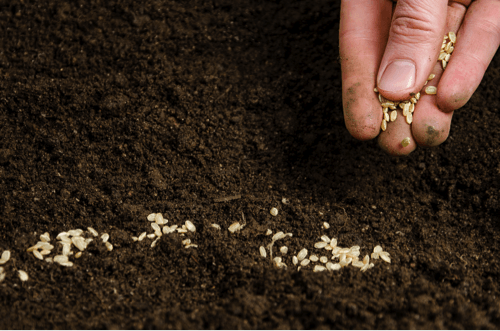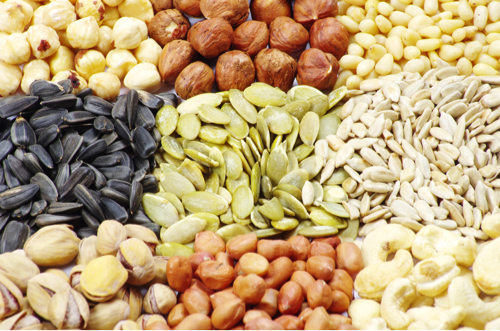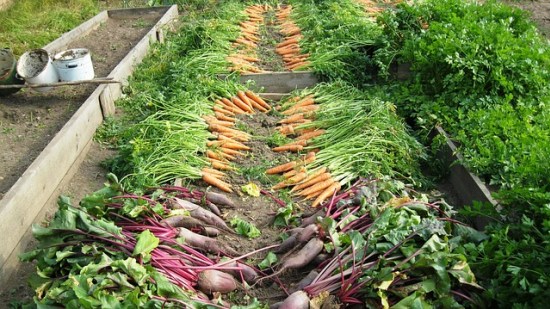The top performers in any field do things a little- or a lot- differently than you and I. That’s why they are at the very top of their game.
This is as true of gardening as any other pursuit. Aside from the patience, persistence and consistency that any gardener must possess to bring a crop to fruition, the pros have some lesser-known skills that pay off big time when the harvest rolls around. Below are seven strategies you can implement to up your game this season.
7 STRATEGIES FOR SUCCESSFUL GARDENS
#1. MAKE A GARDEN PLAN
“By failing to prepare, you are preparing to fail.” –Benjamin Franklin
Many gardeners probably start their journey by heading to the Home Depot, buying seeds for whatever vegetables they regularly eat, and then planting wherever they think makes sense. That’s not a recipe for a bountiful harvest. Even more experienced gardeners could no doubt spend more time in the planning phase to good effect.
Each plant has different needs when it comes to the amount of water, sunlight and the nutrients it needs from the soil. Plants also have different tolerances for the pH level of the soil. Even within your garden, some spots are going to benefit some plants over others.
Plants also grow at different rates and can overtake other plants nearby. All this calls for a master plan, to be devised by each gardener and consistently executed.
#2. KEEP GARDEN RECORDS
“It doesn’t matter how beautiful your theory is, it doesn’t matter how smart you are. If it doesn’t agree with experiment, it’s wrong.” –Richard Feynman
Just as important as planning, though an even less common practice, is record keeping for your garden. Gardening like a pro on your particular plot of land is going to be the result of experimentation. And unless you have an infallible memory, you’ll need to write all the info down. What did you plant where, how much compost did you add, how often did you water, etc., there are many variables to record and you’ll make more progress faster if you have a system for recording your wins and your losses.
#3. SAVE SEEDS
Saving seeds can be the difference between a mere hobbyist and a gardener who takes his or her craft seriously. Like saving any other heirloom, preserving heirloom vegetables connects you to the past and often provides flavor that you simply can’t get elsewhere in our modern world of genetic science run amok.
A gardening pro will save the seeds that work best and preserve those irreplaceable flavors for future generations, while enhancing the productivity of their garden each year.

#4. BUILD UP YOUR GARDEN SOIL
The biggest factor in growing produce like a boss is the quality of your soil. For smaller home gardeners the fastest and easiest path to better soil is raised beds. They give you efficient spacing, excellent soil quality and are easier to maintain than traditional gardening methods. For those who have more space and prefer to work the land the old-fashioned way, it’s still critical to build up your soil.
A “good farmer” these days in California will make $12,000-$14,000 per year, per acre from their farm. A couple with a small farm in the Golden State has developed a method that uses less water and produces $95,000-$100,000 per year, per acre! Soil quality is the crucial factor that allows them to do this. Learn their exact method here.
#5. GO VERTICAL IN THE GARDEN
Whether you have a little space for your garden or a lot, you can always get more out of it by growing vertically up stakes or trellises. Vertical gardens are less susceptible to fungal diseases and far easier to maintain because you can do it standing up. Any vining crop can probably be improved using this method and you can even use it for larger plants like melons with no problem. There are a lot of different ways to add this feature to your garden and many are beautiful as well as productive—here are some great vertical gardening ideas.
#6. TRY SUCCESSION PLANTING
One way that the pros get more out of their land is simply by planting more crops, but that requires some serious planning (remember tip #1?). Extend your season by planting faster developing crops after your initial harvest to create a second harvest later in the season. You can even plant winter hardy plants that can continue into the cold months or if you’re truly serious about year-round production you can go so far as to build your own greenhouse. These tactics take full advantage of every season and can seriously increase your production.

#7. PLANT COMPATIBLE COMBINATIONS: COMPANION PLANT
A strategy that can both save space and increase the health and yield of your crops is to plant compatible combinations of crops. Some plants will compete for resources, draining all competitors, while others work very well together. Knowing the difference is key and here’s a list of companion plants to get you started.
That’s our seven tips for turning pro in your garden this year. Hopefully you’ll incorporate these practices into your gardening and experience the joy, satisfaction and delicious bounty of a garden expertly managed (via GardeningChannel).

